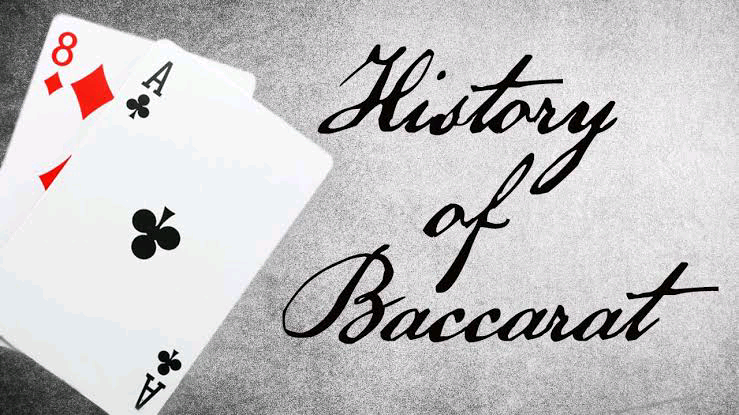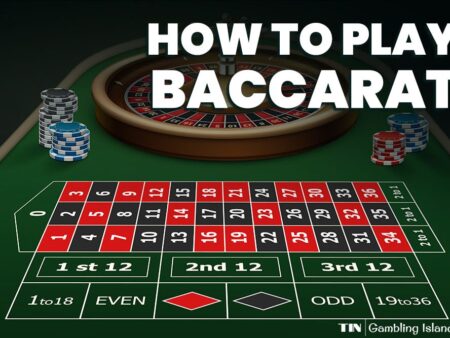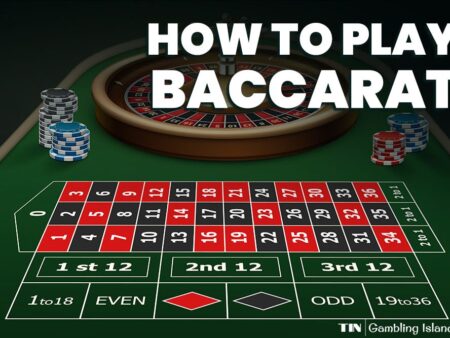
What do you know about your favorite casino game, Baccarat? Do you know how it evolved? Let’s dive in to find out.
Origin and Early History of Baccarat
Baccarat is believed to have been birthed in Italy during the 1400s by Felix Falguiere or Falguiere. The name “baccara” is Italian for “zero” representing the value of face cards in the game. Initially played with tarot cards before transitioning to the standard deck.
Discovering the roots of Baccarat is akin to tracing the lineage of royalty. Considered by many as the game of aristocrats, your initial encounters with Baccarat might conjure images of glamor and exclusivity. This isn’t accidental; Baccarat’s origin story begins in Italy during the 15th century. Picture this: a game conceived by a man named Felix Falguiere or Falguierein, which rapidly gained the affection of the Italian nobility.
The game’s very name – “baccara” – in Italian translates to “zero,” a nod to the value placed on all face cards and tens. What’s particularly intriguing is that Baccarat wasn’t always played with the modern standard deck of cards you may be familiar with today; it originally found life through the tarot.
As you delve into Baccarat’s past, it becomes clear that it wasn’t merely a pastime but a reflection of the society that embraced it. The transition from the mystical tarot to standard playing cards signifies not just a change in the game but in the cultural landscape that surrounded it.
Baccarat’s Journey from Italy to France
The game migrated to France in the late 15th century where it was known as Chemin de Fer. It gained immense popularity among the French nobility. King Louis XIV, despite attempts to ban it, only increased the fascination and popularity
Let’s take the storyline across the border into France, where Baccarat’s flame of popularity spread with fervor among the French nobles. Imagine it being whispered across opulent halls under the moniker ‘Chemin de Fer.’ France, a nation known for its appreciation of art and culture, embraced Baccarat with open arms, allowing the game to flourish and evolve.
Your mental picture of Baccarat might now be influenced by the likes of James Bond in a sharp tuxedo, measuring his bets at the casino. This association with sophistication and high stakes is deeply rooted in its history of exclusivity. Imagine the irony when King Louis XIV – known as ‘The Sun King’ – tried to extinguish the game’s flame with legal bans. His efforts, paradoxically, only served to increase Baccarat’s allure, cementing it as a favorite forbidden pastime of the aristocracy.
What’s encouraging about Baccarat’s story is its resilience. The game has survived attempts to be outlawed, periods of war, and cultural changes. Yet, it has not only survived; it has thrived, evolving with each era. Whether it was Baccarat banque, the favorite of the first players, or the rotating banker style of Chemin de Fer, the essence of Baccarat remained steadfast: a sophisticated and engaging game of chance that has captured hearts across the centuries.
The Aristocratic Game of France
Picture yourself in the resplendent halls of 15th-century France, where tales flourish of a game that captures the aristocracy’s favour. This game, with its facets gleaming like those of the chandeliers above, is none other than baccarat, or as it was known then—baccarat banque. As you immerse yourself in these tales, you’ll recognize baccarat as the pastime of choice for French nobility, where not only strategy and luck played roles, but also social standing and elegance.
Legacy of the Game: Throughout France, baccarat’s appeal was not confined to the common masses. It was a symbol of status and refinement among the elite.
Cultural Significance: Your ancestors might recount how baccarat was more than just a game—it was a ceremonial ritual where the nobles could exhibit their sophistication and wits.
Chemin de Fer’s Emergence: As years progress, observe the transformation of baccarat into the more accessible variant, chemin de fer, yet continuing to hold that air of exclusivity and glamor.
As you engage in the echoes of baccarat’s history, imagine yourself partaking in a tradition that has been a staple of high society for centuries, a game that demands poise as much as it does intellect.

Paul Barnes cuts through the casino hype with honest reviews and strategy breakdowns. He’s played on every major platform, always looking for the hidden gems (and the ones to avoid).
More about Paul Barnes
Age: 31
Experience: Rising star in the online casino scene, 7 years of in-depth reviews
Background: Studied journalism before finding his passion in gaming analysis
Hobbies: Retro video game collector, aspiring board game designer
Residence: Brighton
Marital Status: In a committed relationship

